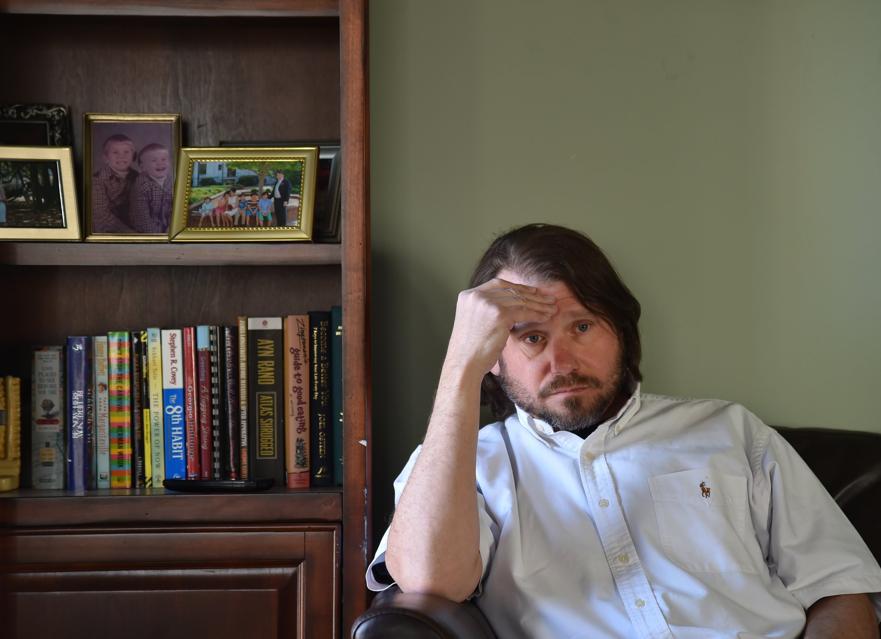|
Judge dismisses claims against Boy Scouts, church in sex abuse suit
By Christian Boone
A judge has dismissed some charges against the Boy Scouts of America and First Baptist Church of Gainesville filed by a man alleging he was molested 32 years ago by a former scoutmaster. Critics say Cobb County Superior Court Judge LaTain Kell’s ruling reveals a shortcoming in the Hidden Predator Act. While the 2015 law extended the statute of limitations in Georgia for childhood victims of sexual abuse seeking damages, it protects the institutions that provided access to children for alleged abusers from any liability, they said. The case against Fleming Weaver, who is accused of raping Robb Lawson when he was 14 years old at a Boy Scouts campground, will continue. Judge Kell denied Weaver’s motion to dismiss, saying his claim that Georgia’s Hidden Predator Act is unconstitutional is unfounded. “The Boy Scouts of America is aware of the decision made by the Superior Court of Cobb County,” the Scouts said in a statement provided to The Atlanta Journal-Constitution. “We thank the Court for its time and careful consideration of all viewpoints in this case.” “The BSA is outraged there have been times when Scouts were abused and we sincerely apologize to victims and their families,” the statement continued. While they remain elusive targets, the Boy Scouts and the other individuals and institutions named in Lawson’s suit still face some legal jeopardy. RICO (Racketeer Influenced and Corrupt Organizations) counts against the Scouts, its Northeast Georgia Council, the estate of longtime Scouts leader Gene Bobo, First Baptist and its former pastor Steven Brown have not been contested. Those charges, raised in two amended complaints filed by Lawson’s attorneys, allege a conspiracy of silence on behalf of the named parties to protect themselves from any responsibility for Weaver’s misdeeds. “It may be a legal victory for them but they shouldn’t claim it as a moral victory,” said Esther Panitch, co-counsel for Lawson. His suit alleges officials knew Weaver had sexually abused boys but failed to take steps to stop him from continuing to do so. Four years before Weaver sexually abused Lawson at a camp in North Georgia, the scoutmaster admitted to Brown — in his role as pastor of First Baptist, which sponsored the troop Weaver led — that he had molested two of its boys. Bobo, who attended the church, was told about the abuse by his pastor but they agreed not to inform the Boy Scouts, the Northeast Georgia Council or law enforcement. The Boy Scouts acknowledged in court documents that they “acquired knowledge that Weaver has been accused of sexually abusing Scouts from other troops from a time period prior to his appointment as Troop 26 Scout Leader” in 1969. They have turned over those files but the contents remain sealed to the public. The claims dismissed by Kell, related largely to negligence, were barred by the statute of limitations because Lawson did not offer any evidence that they deterred him from filing suit. Also, “Despite knowing of the wrongful conduct, (Lawson) kept the abuse hidden and did not notify anyone of the abuse he had sustained until over 30 years later,” Kell wrote. Attorney Angela Williams, who has handled many such cases and lobbied extensively for a stronger Hidden Predator Act, said excluding entities from any responsibility weakened the new law and made it more “predator-friendly.” “We are battling giants,” she said, naming institutions, including the Georgia Chamber of Commerce, the Catholic Church and the insurance industry, who she said lobbied against the bill. “Without the entities being held accountable, the law is not going to have much impact.” The legislation included a two-year window, which expired July 1, for victims extending the statute of limitations. Now, they have to get a judge’s approval before proceeding with a lawsuit. “They’ve made it difficult as possible on victims,” Williams said.
|
.
Any original material on these pages is copyright © BishopAccountability.org 2004. Reproduce freely with attribution.

